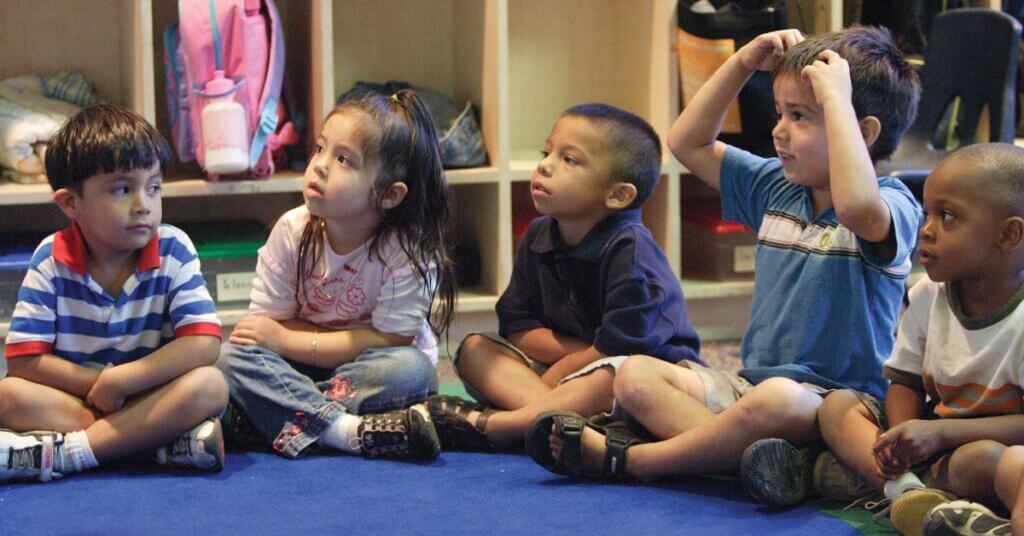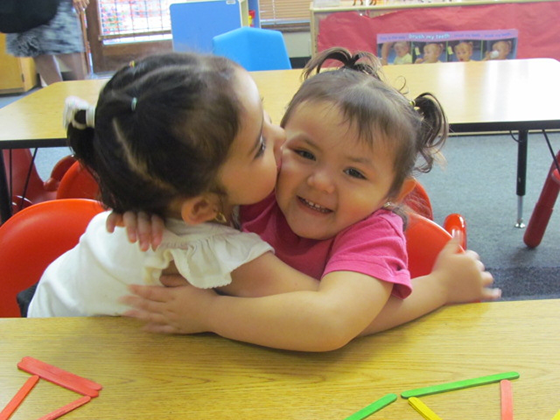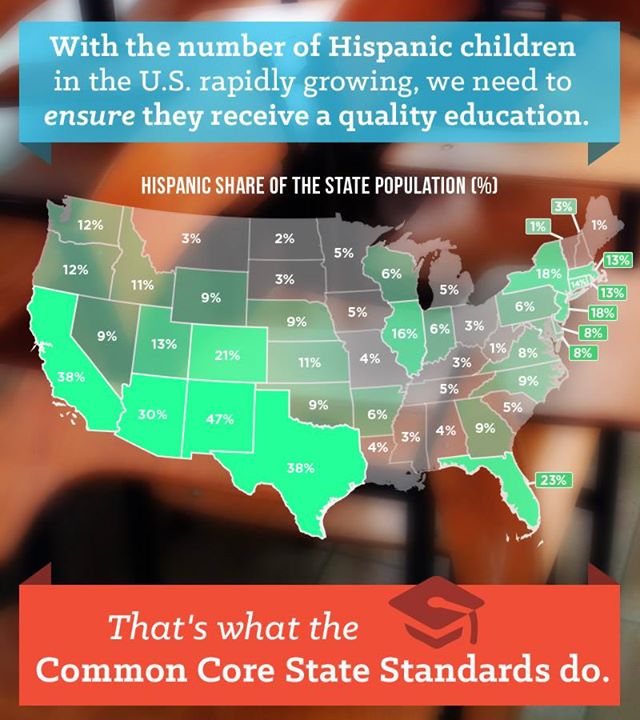UnidosUS’s Latest Early Childhood Report Lays the Foundation for Its Upcoming Latino Infants Initiative
By 2060, the U.S. Census estimates that the U.S. Latino population will reach 111 million and that Latino children will make up one-third of all three- to four-year-olds in the United States. To plan for the needs of these children and their families, UnidosUS has just released a comprehensive report titled “Latino Infants: A Continuing Imperative.”
“In the view of UnidosUS, developing informed policies and providing sufficient resources is investing, not merely spending,” the report states.
“Latino Infants: A Continuing Imperative” is designed to call out misinformation about dual language development in early childhood and to provide key messages and policy recommendations for UnidosUS’s new Latino Infants Initiative (LII). Funded by a grant from the Pritzker Children’s Initiative, the LII will be a nationwide policy and advocacy network developed in collaboration with Abriendo Puertas/Opening Doors. The initiative will create and develop a network designed to guide the development of a national policy agenda and enable programs to more readily provide high-quality services to Latino infants.
Keep up with the latest from UnidosUS
Sign up for the weekly UnidosUS Action Network newsletter delivered every Thursday.

THE “LATINO INFANTS” REPORT
The report, which includes data collected by UnidosUS, its affiliates, and partnering organizations, begins with an overview of demographic imperatives. It describes how systematic racism has contributed to inequities in education and health, particularly in recent years, as Latino families have been disproportionately impacted by the COVID-19 pandemic in just about every aspect of their lives. Latino families have lost wages and been denied access to key resources, including health care and the technology needed for online learning. And all the above has come with social and emotional costs for Latinos, to say nothing of the grief that so many have experienced after losing family members to the pandemic.
The report also points out that infants are not simply helpless creatures; they are people with growing and brilliant minds, who, given support, have much to contribute to the social fabric of this nation. Most Latino children are well-placed to become fully bilingual in infancy, which improves their communication skills, better enables them to engage in complex thinking and problem solving and develops their social and emotional intelligence. Most Latino children also have tight-knit extended families who offer them an entire ecosystem for social engagement.

Dual Language Development, Early Literacy, and the Importance of Culture
The report encourages parents to engage young children in multilingualism, pushing back on the antiquated and elitist ideas that learning Spanish presents a barrier to academic success in English or that children learning several languages will get hopelessly confused.
“The idea that a child’s development of Spanish is a barrier to learning English or being successful in school is false and should be intentionally rejected,” the report states. In fact, data from the report show that language acquisition begins in utero in the later stages of pregnancy. The UnidosUS report also cites a 2016 Cambridge study connecting the size of a 16- to 30-month-old child’s vocabulary to their eventual level of academic achievement in the sixth grade.
“Simply put, children’s knowledge and skills developed between birth and kindergarten entry are extremely important predictors of their long-term educational success,” the report notes.
The report also refutes a conventional narrative that children don’t have the capacity to learn more than one language well. This narrative has been used to argue that education in the United States should be English only. However, there is considerable research proving that this narrative is false. A 2017 report published by the National Academy of Sciences synthesizes the wide array of research on this subject. The report cites one study demonstrating that newborns distinguish between multiple languages within a few hours of being born. Another study concludes that “infants growing up in bilingual homes learn two languages simultaneously without apparent confusion or delay.”

Maternal and Infant Health
To achieve their full potential, Latino infants and their families need access to quality health care and education, nutritious food, adequate housing, and culturally relevant family support services. The “Latino Infants” report found, however, that in 2020, Latino children were three times more likely than white children to live in poverty. The reasons for this begin even before pregnancy, as many Hispanic women are less likely than white women to use or have access to contraception, and as Hispanic women often have patchy health insurance, even with the advances of the Affordable Care Act.
These inequities impact the physical health of mothers and children, but they can also lead to depression and other mental health problems. Latinas are twice as likely as the general population to experience depression during and after pregnancy. Toxic stress for babies can begin in utero and extend well past birth.
“When a mother’s mental health is compromised, it can affect the way she parents or emotionally attends to her child, thus putting herself and the child at risk for difficulty with emotional attachment and regulation,” the report states.
The report also emphasizes that the COVID-19 pandemic has exacerbated mental health disparities in the United States, contributing to an increase in adverse childhood experiences (ACEs), such as the loss of a caregiver due to COVID-19. The report notes that 51% of Hispanic children have experienced at least one ACE, compared to 40% of white non-Hispanic children.
And while widespread social outreach campaigns have helped Latino families vaccinate their children, high rates of poverty still contribute to food insecurity and lower nutrition, as well as less oral health treatment.

The Voices of Infant/Toddler Teachers and Administrators
Much of the data collection and analysis for the report was obtained through surveys and interviews with infant/toddler teachers and administrators, who shared anecdotes, concerns, and best practices around all the child development issues discussed above.
Teachers and administrators placed great importance on culturally responsive dual language programming and on childhood health and nutrition. For example, 94.7% of respondents to one survey rated daily learning in a child’s home language as “very important.” Moreover, 93.6% of respondents indicated that it is “very important” for teachers to familiarize themselves with the cultural and linguistic backgrounds of the infants they serve.
Survey respondents also said they need greater economic and professional support in their efforts to help children develop. Teachers and administrators want the public to recognize that they are highly trained and experienced professionals who are shaping the next generation in the United States. Suggested changes included referring to instructors more consistently as “teachers” rather than “caregivers,” increasing teacher salaries and benefits, encouraging more engagement from parents in their children’s educations, and increasing access for families to programs that help children get the nutritional and social supports they need.

Policy and Advocacy Recommendations
The report concludes with 11 policy and advocacy recommendations. These include devoting more resources to teacher salaries and professional development, expanding access for infant mental health services, increasing paid family leave and medical leave for parents, and expanding a variety of programs: Medicaid, CHIP and Early Head Start programs, and a pilot program that would further research into dual language development.
“It’s important from a policy perspective that children be encouraged and supported to develop multilingual skills from infancy,” Unidos US Director of Education Policy Amalia Chamorro told ProgressReport.co earlier this year. “We will continue to see persistent opportunity gaps in the K-12 system for English learners unless policymakers recognize the assets of dual language learners and invest in early interventions.”
To that end, UnidosUS and Abriendo Puertas/Opening Doors will launch the LII this summer by engaging early childhood education leaders and parents of Latino infants through focus groups and a national survey.
-Author Julienne Gage is an UnidosUS senior web content contributor and the former editor of ProgressReport.co.




